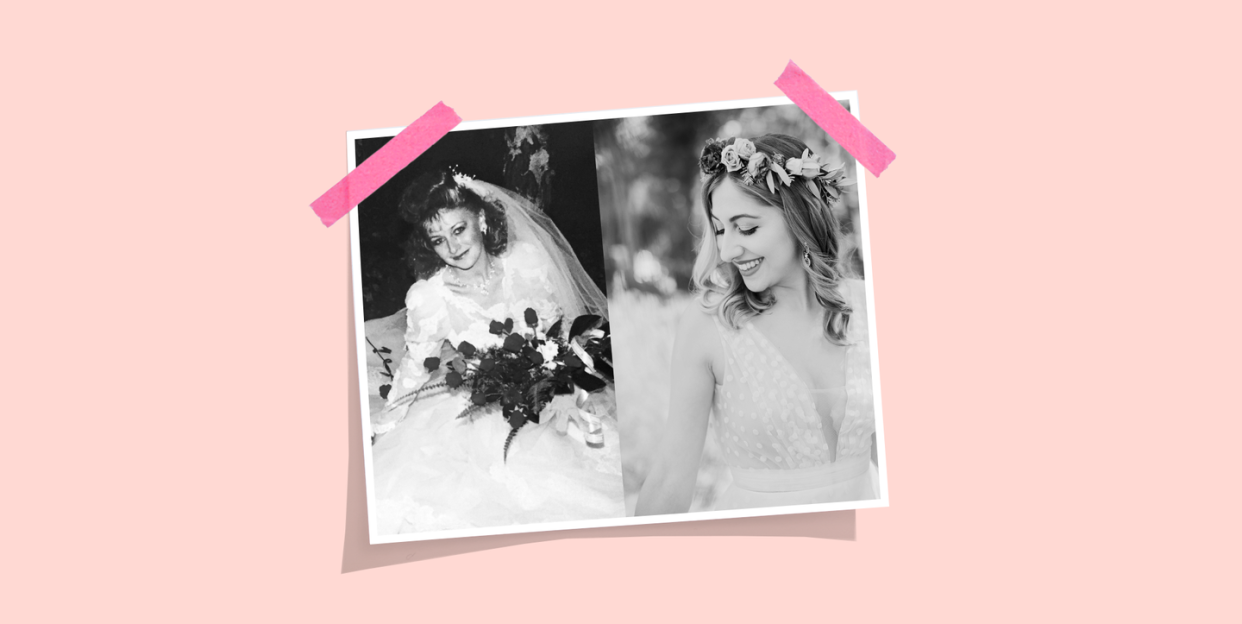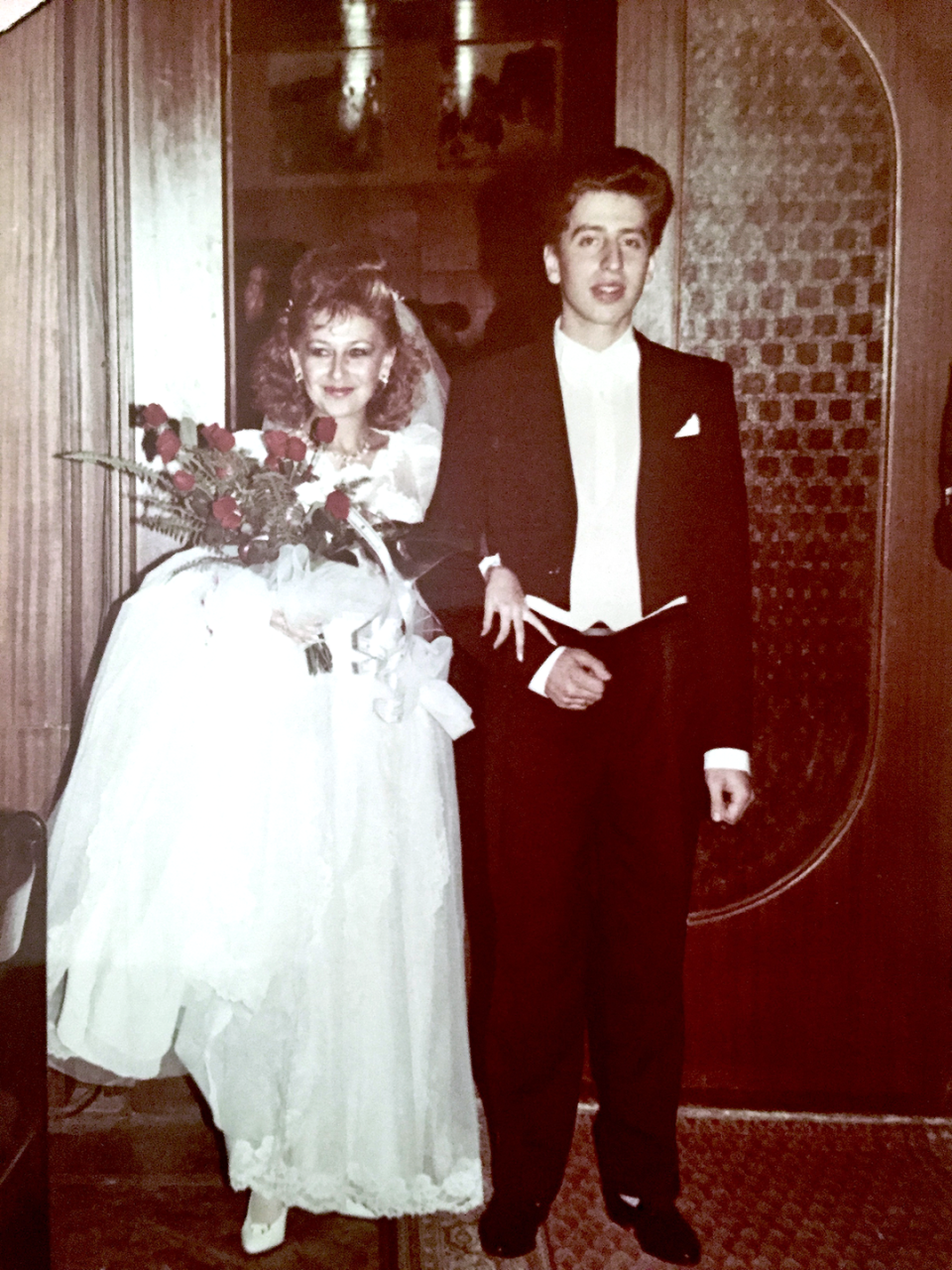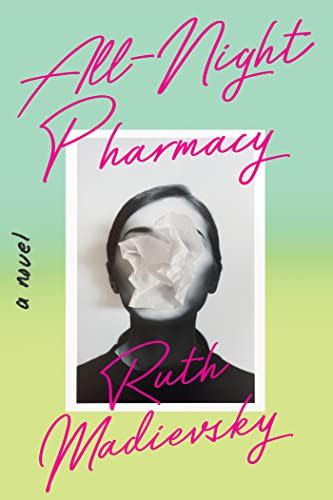Shopping for a Wedding Dress Brought Me Home to Myself

"Hearst Magazines and Yahoo may earn commission or revenue on some items through these links."

Twenty-six years after immigrating to Los Angeles from Kishine, Moldova as a Jewish refugee, I returned to my birthplace for the first time in search of a wedding dress. It was a journey that started before I was born and in some ways, one that didn't end when I landed back home in L.A.
When my mother got married in Soviet-era Moldova in 1989, she wore a dress that was made in the U.S.—a wedding gift from my father’s distant cousins in Philadelphia. It was incredibly unusual for a time when only a few clothing manufacturers were permitted to sell to the insular Soviet Union, and most women’s wedding dresses bore the same designs as their peers’. In my mother’s telling, hordes of women outside city hall begged to buy the dress off her back as she and my father headed to their reception. She ended up selling her dress and veil two days after her wedding, to a woman who hadn’t even tried them on.
My mother’s wedding dress was a white, long-sleeved, lacy number with a train that resembled merengue. It featured shoulder pads and beaded flowers, which my mother wore with a complementary pearl drop necklace and bejeweled veil clip. She carried a bouquet of red roses that, even in the sepia-toned photos, popped against the white of her dress. She was 20 years old. My father, 23, was clad in a tuxedo my maternal grandmother had borrowed from a member of the Symphony Orchestra of Moldova.

Two years earlier, my parents had met at the university where my mother was studying pharmacy and my father medicine. After a year of dating, my mother boldly asked when my father was planning on proposing. Her clear-eyed confidence at 19 was unimaginable when I was her age. Though I was 19 when I started dating my now-husband, I was nowhere near ready to plan the rest of my life. We got engaged eight years in, just after my 27th birthday. After taking me to lunch and a photography exhibit, Adam proposed at my favorite LA indie bookstore, Skylight Books, beneath the Ficus tree that blooms in the center of the store.
We opted for a two-year engagement, partly because Adam was starting graduate school, and partly because the choices in front of us were overwhelming. We could get married in a synagogue, or on a campground with a functional Ferris wheel, or at an aquarium between walls of rainbow fish. I could wear a white dress or a magenta patent leather romper. These aren’t hypotheticals, but actual considerations I made. Meanwhile, my parents’ choices—like those of most Soviet citizens except the very wealthy—were functionally limited to getting married at a restaurant or a family home. The run-down local synagogue, which my family didn’t feel safe attending while living under state-sanctioned antisemitism, wasn’t even a consideration. My parents opted for a popular hotel restaurant with a security guard (who conveniently disappeared when a band of local troublemakers burst into the reception demanding a cut of their wedding presents).
Despite the abundance of choices in front of me, I didn’t love any of the American wedding dresses I tried on. There was the smoke gray gown with flower appliqués that made my boobs look amazing, but the fact that it was constantly advertised on social media made it feel like a McDress. There was the tight Grecian gown that weighed a million pounds, and the gossamer white-and-silver one that barely concealed my nipples. My mother and I flitted from boutique to boutique, sipping champagne as their staff stuffed me into one tastefully revealing outfit after another. All of them were beautiful, and none of them were right.
An American wedding that pays tribute to my roots
My wedding was shaping up to be pretty nontraditional from a post-Soviet perspective. Our venue was a family-owned farm, where guests could feed alpacas—a far cry from the banquet halls dripping in white roses and crystal chandeliers at the recent family weddings I’d attended. We would not be serving beef stroganoff or Olivier salad. Our band would not be playing “Russophone hits” (sorry, Alla Pugacheva and J.Lo). I wasn’t sad about how American-leaning our choices were per se, but I didn’t want my ethnic background to be erased either. I’d walked this tightrope of identity countless times by then, but it never got easier.
I grew up mostly in Los Angeles from the time I was two, straddling two distinct cultures. The life we left behind was discussed with a blend of bitterness and nostalgia. The Soviet Union was a terrible place to be a Jew; god, was the fruit delicious. Our community had one another’s backs; the only way to get by was through an economy of bribes. We spoke Russian, but we weren’t Russian. We lived in Moldova, but we weren’t Moldovan, because Jews were excluded from belonging to national identities. I grew up with no word for what I was and no discrete place to call home.
When I had the opportunity to return to Moldova with my parents for the first time in 2019, I became fixated on finding my wedding dress there. I hoped that reenacting the inverse of my mother’s experience by wearing a gown from Moldova when she’d worn one from America could help weave together the disparate parts of my identity.

We spent five days visiting my parents’ childhood friends and old haunts. The restaurant where my parents got married was long abandoned. Loose wires hung from the ceiling, the floor a mess of weeds and shattered cement. We spent time at my parents’ medical school, our exhausted-looking former apartment complex, the grim Jewish cemetery where my ancestors are buried. The jungle-dense weeds and cracked headstones—some of which were neglected and weather-worn to the point of unreadability—made our family lore about survival under state-sanctioned antisemitism and Soviet terror more real than a dress ever could. It felt like everyone buried there had been forgotten, though my parents assured me that they paid a groundskeeper to tidy our ancestors’ graves every month. By the time we went shopping the next day, the idea that a wedding dress could bind the shards between the life my family left behind and the one I largely enjoyed in the U.S. felt laughable.
Finding the dress carried an outsized weight
There was gravitas to visiting the three bridal boutiques that the daughter of my mother’s childhood best friend picked out. My family had left; her family had stayed. We were three daughters of Moldova, but my mother and I were semi-helpless tourists in the place we’d once called home. When I slipped on a gauzy white dress embroidered with small velvet polka dots, its bodice a deep vee, I knew I’d found the one. But it wasn’t the euphoric moment I’d expected. Finding my wedding dress in the city where I was born, surrounded by the ghosts of the life we’d left behind, was bittersweet and highly charged.
Thirty years earlier, my father had to serve in the Soviet Army to earn one of the coveted medical school spots open to Jews. Thirty years before that, my great-grandfather was murdered as an enemy of the state. Twenty years before that, my late grandfather’s wife fled Moldova at the start of World War II and nearly died in a bombing. I’ll never forget the way she described watching her family cow blow up. She was 3 years old. The extremity of details like this has haunted me long after returning to the U.S. My wedding dress could never just be a wedding dress with these stories woven into its fabric.

All-Night Pharmacy: A Novel
$24.30
amazon.com
Beyond the acquisition of my wedding dress, the trip inspired much of my forthcoming debut novel, All-Night Pharmacy. It’s a coming-of-age narrative about a young woman reckoning with intergenerational trauma and her nascent queerness, with the help of an allegedly psychic Jewish refugee from Moldova. It’s also about fraught family dynamics, addiction, and learning how to claim ourselves. Partly set in Moldova, the novel became a container for the family stories that I feared would otherwise be lost.
Between the pandemic ravaging Moldova and the instability of the region due to Russia’s genocidal war in Ukraine, I don’t know when I’ll be able to safely visit my birthplace again. Several people I spent time with there have fled, and my late grandfather’s wife has died of COVID-19. Scholar Svetlana Boym’s definition of nostalgia as “longing for a home that does not exist or has never existed” feels truer than ever.
I doubt this longing will ever cease, but I’ve made a home in its dull ache. There is no resolving the in-between-ness of being diasporic. Connecting with other immigrants and learning that I’m not alone in that feeling has been deeply healing, as has writing about the diasporic experience, both in my novel and elsewhere. I’ve stopped looking for a slick descriptor of my identity. “Post-Soviet American Jew” is where I’ve landed for now. And I no longer expect physical objects like a wedding dress to glue me back together. Why should I? I’m not broken.
Originally from Moldova, Ruth Madievsky lives in Los Angeles, where she is a chapbook reader for Gold Line Press and a pharmacist. Her debut novel All-Night Pharmacy comes out in July. This essay is part of a series highlighting the Good Housekeeping Book Club — you can join the conversation and check out more of our favorite book recommendations.
You Might Also Like

